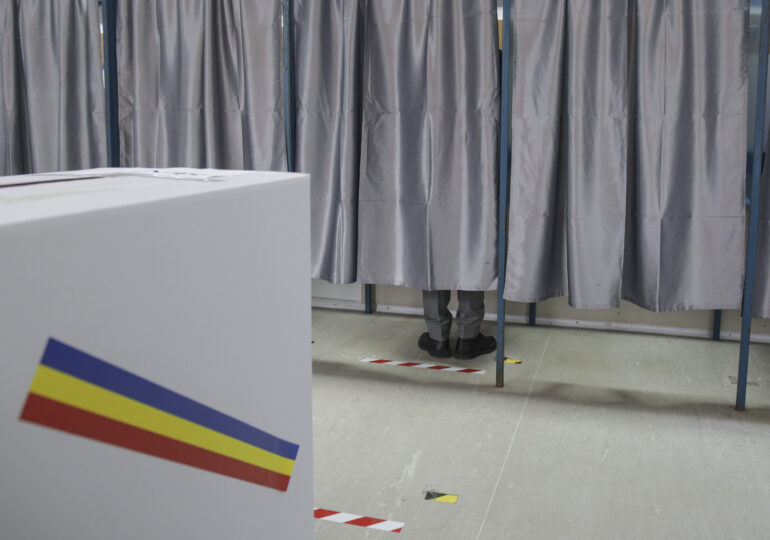Romanians are called to the polls for three weekends in a row, and all eyes are on the far-right party AUR.
Will Romania join the global shift towards the hard right? This is the key question as voters head to the polls in the coming weeks to elect a new president and a new parliament, after a polarizing campaign presented by the main parties as a choice between stability and extremism, writes POLITICO.
Several candidates are vying to become the next president of the southeastern European country - George Simion from the far-right AUR party, currently in second place in the polls, being the one to watch ahead of the first Sunday vote.
Why You Should Care
Whoever wins will represent Romania in Brussels and NATO.
Despite its history of corruption scandals, Romania has long been seen as a reliable NATO ally in Eastern Europe and a country that has largely adhered to EU norms in the region. This track record sets it apart from other countries in the region, such as Hungary, Slovakia, and Bulgaria, which constantly raise concerns about the rule of law and closeness to Russia. This could change now, according to POLITICO.
Simion has pledged to take a tougher stance in Brussels and defend Romania's national interest, even if it means defying EU legislation. If elected, he will join an increasing number of far-right leaders within the bloc, tilting the balance even further away from mainstream parties and centrist policies in the EU's highest decision-making body.
The head of the AUR party has stated that he looks up to Trump, Italian Prime Minister Giorgia Meloni, and Polish hard-right leader Jarosław Kaczyński.
At the same time, Romania's relations with Ukraine and Moldova could also deteriorate, as Simion is currently banned from entering both countries.
A victory by any other presidential candidate, on the other hand, is expected to represent continuity for the country's foreign policy.
What's at Stake
Thirteen candidates hope to replace Klaus Iohannis, the current center-right president, who is ending his second term after a decade in office.
The top five in the polls in Romania are Marcel Ciolacu, the current Prime Minister of Romania and leader of the center-left Social Democratic Party (PSD), George Simion, leader of the far-right Alliance for the Union of Romanians, a newcomer to Parliament, Elena Lasconi, leader of the centrist liberal Save Romania Union, former TV reporter and current mayor of a small town, Mircea Geoană, a former NATO Deputy Secretary General and former PSD leader running as an independent, and Nicolae Ciucă, a retired general and former center-right Prime Minister, who heads the Romanian Senate.
During the campaign, there have been few real policy discussions, despite the country's economic slowdown and huge public deficit. Instead, presidential candidates have focused on personal attacks, scandals, and slogans. For example, Simion has been accused of meeting with Russian spies - which he denied - while Ciolacu is criticized for his expensive luxury plane trips, notes POLITICO.
On paper, all presidential candidates are pro-EU, pro-NATO, and support Ukraine over Russia.
However, Simion has promised to suspend military aid to Ukraine if elected, and to support a peace deal negotiated by the US President-elect, Donald Trump, even if it means Ukraine making territorial concessions.
Other presidential candidates have also acknowledged that Ukraine cannot achieve peace without ceding some territories to Russia.
Whether Simion makes it to the second round or not, his AUR party is poised to perform well in the parliamentary elections on December 1st - making it difficult to exclude them from any coalition.

